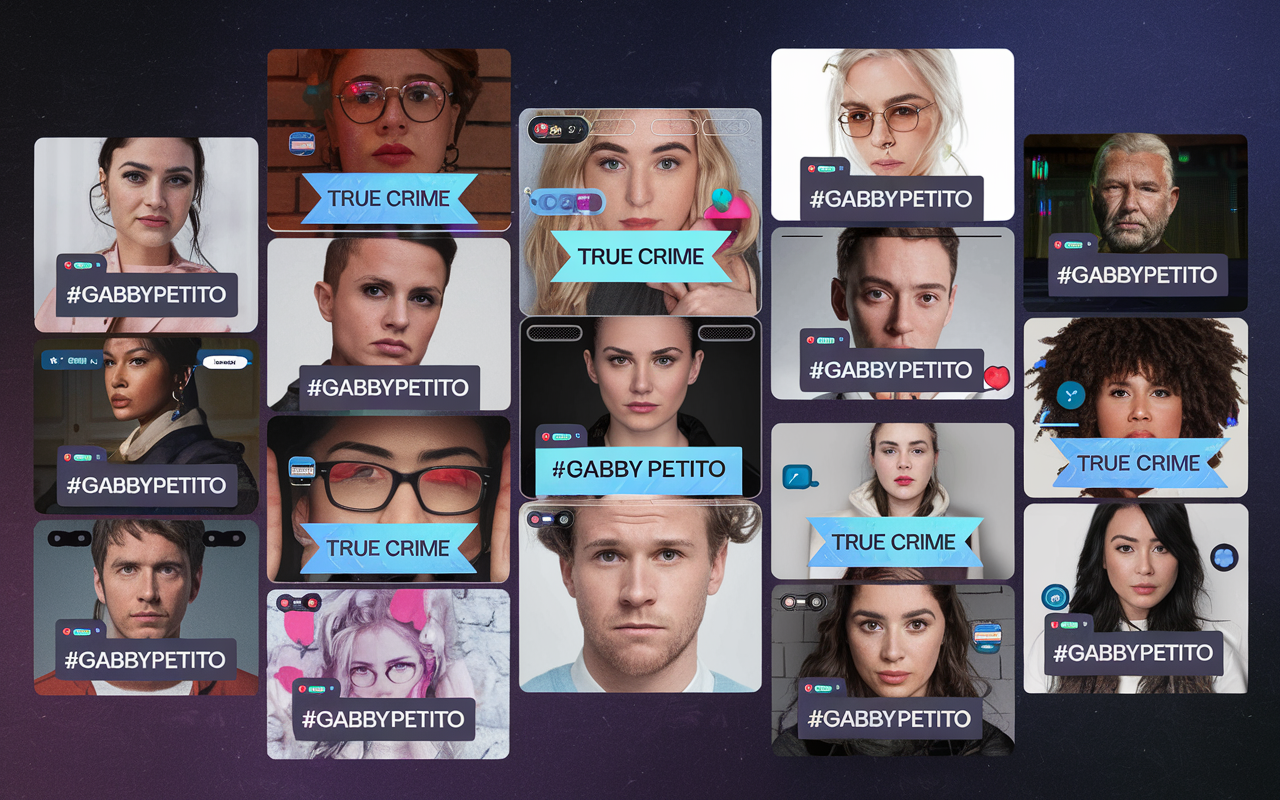The Gabby Petito Case: A Turning Point for TikTok's True Crime Community 🕵️♀️💔
It's hard to ignore the chilling effects of the Gabby Petito case on our society, particularly in how true crime has blossomed on social media, especially TikTok. The disappearance and tragic death of Gabby Petito became a media sensation, bringing forth a wave of digital sleuthing by ordinary people who hoped, in some way, to help resolve the mystery. This phenomenon has changed how individuals engage with true crime events.
The Rise of Online Sleuths 📱🔍
On July 2, 2021, Gabby and her boyfriend, Brian Laundrie, embarked on what was supposed to be a life-changing road trip. Instead, it spiraled into a nationwide search that captivated millions. When Brian returned home without Gabby, a media frenzy erupted. Petito's face became a symbol of hope, desperation, and ultimately, tragedy.
The public response was intense and immediate; TikTok became the primary platform for users to share their theories and findings under the hashtag #GabbyPetito. Not only did they analyze body language and connection patterns, but they also engaged in speculation that sometimes crossed into dangerous territory. 🙈💔
What struck me (and many others) was the sheer volume of content—from video analyses to question-and-answer sessions—in which these digital sleuths rallied together. Gabby's father, Joe Petito, famously stated, “We need to do what we could and that’s get as many eyes on Gabby’s face as possible.” His call for action saw not just participation from family and friends but also thousands of strangers online 👥👀.
From Interest to Involvement: A Dangerous Shift ⚠️
The Petito case was a catalyst that emboldened users on TikTok, spurring them to get more involved in ongoing cases. Some of this engagement is constructive, as demonstrated by fellow van life vloggers who helped locate Gabby's remains, but this enthusiasm has a darker side as well.
In a startling evolution, amateur sleuths have sometimes led fiery witch hunts against innocent individuals. For instance, amidst the recent University of Idaho murders, a wave of harassment fell upon individuals wrongly accused by TikTok users who acted without any evidence. 🥺🔪 Such conduct raises ethical questions about the lines between concern, engagement, and sheer recklessness.
A New Era in True Crime 🎥💭
Looking ahead, the evolution of the true crime genre requires careful consideration. It’s essential to discuss what responsible engagement looks like in a platform-driven environment where sensationalism can overshadow the pursuit of justice.
Will it take another tragedy for the TikTok community to reevaluate its approach? Only time will tell, but in the wake of Gabby Petito’s heartbreaking story, it is crucial for us to strike a balance between curiosity and sensitivity.
Conclusion
As we reflect on the complex implications of Gabby Petito's death on TikTok's true crime community, it's crucial to promote dialogues about ethics in online sleuthing. The power of social media can be harnessed positively for awareness and justice, but it can also spiral out of control without proper direction. Let’s hope that future discussions around true crime strive for the justice Gabby and her family deserve while respecting the humanity of all involved. 🚦❤️
For those interested in reading the full story that ignited this transformation, check out the article by CT Jones on Rolling Stone.
Feel free to share your thoughts below! Is the dynamic interplay between true crime and social media beneficial or harmful? Let's keep the conversation going! 💬🗣️
[#TrueCrime #GabbyPetito]

More Stories
Exciting News: The Summer I Turned Pretty is Becoming a Movie
Reflecting on Robert Redford’s Legacy of Integrity and Artistry
Sara Rivers Appeals Dismissal of $60 Million Lawsuit Against Sean Combs: A Fight for Justice in the Entertainment Industry